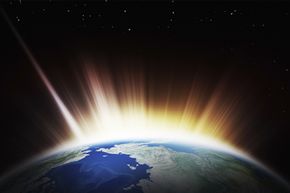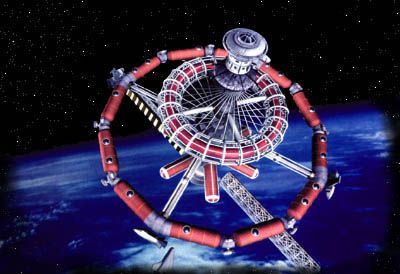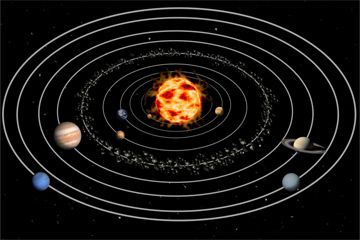The planet on which we live is a pretty amazing place. From the stunning majesty of the Grand Canyon and the Great Wall of China to the inexplicable popularity of electronic dance music and that reality show about a bunch of rich ladies in New Jersey, there's no shortage of reminders of how strange and wonderful life on Earth is. There are also a wide variety of natural wonders happening right under our noses that many of us take for granted. That includes the fact that our planet is constantly circling the sun.
You might not be able to feel it, but Earth is moving right now. Gravity isn't just the name of a Sandra Bullock flick. It's a natural phenomenon that attracts objects to one another. It's our planet's gravitational pull that keeps humans, animals, buildings and other forms of matter grounded. Similarly, the sun, which has a diameter roughly 100 times that of Earth, exerts a gravitational pull on all of the planets in our solar system. That's what causes us to take a lap around the sun every year [sources: NASA, NASA].
Advertisement
If Earth were to change its orbit – maybe because the sun somehow disappeared or another, larger object entered the solar system and exerted a stronger pull – it would very likely mean the end of life as we know it.
Without any orbit, Earth would likely go crashing directly into the sun. That's because our planet's path around that big, bright star in the sky is what keeps Earth from being pulled in directly by the sun's gravity. Picture yourself throwing a tennis ball off a roof. The harder you throw it, the faster the ball moves and the farther it travels before being pulled to the ground. Our giant tennis ball of a planet moves around the sun at a crisp 18.5 miles (29.8 kilometers) per second. It's constantly falling toward the sun, but moving too fast to actually reach it. All that would change pretty fast if the orbit stopped, burning up the planet and everything on it as the planet moved increasingly closer to the sun [sources: National Graphic, Bhatia, Dutch].
A less dramatic shift in Earth's orbit would primarily affect the planet's temperature. The closer you are to the sun, the hotter the climate. Even a small move closer to the sun could have a huge impact. That's because warming would cause glaciers to melt, raising sea levels and flooding most of the planet. Without land to absorb some of the sun's heat, temperatures on Earth would continue to rise. Temperatures also would see a boost from rising levels of the carbon dioxide and vapors that the oceans released into the air [source: Nevins].
Conversely, a shift in the orbit moving Earth farther from the sun would cool and potentially freeze the planet. Oceans would be covered in ice, causing them to release less carbon dioxide and vapor. It would also make years longer; the farther the planet is from the sun, the longer it takes to complete its annual orbit [source: Nevins].
That's not to mention the effect that a shift in Earth's orbit would have on the rest of the solar system. Even a minor change in its path around the sun could cause planets to collide. It also could throw off Earth's delicate positioning with Jupiter. The largest of the eight planets acts as a shield of sorts, deflecting harmful gases and asteroids that might otherwise be bound for Earth [source: Howell].
Advertisement



